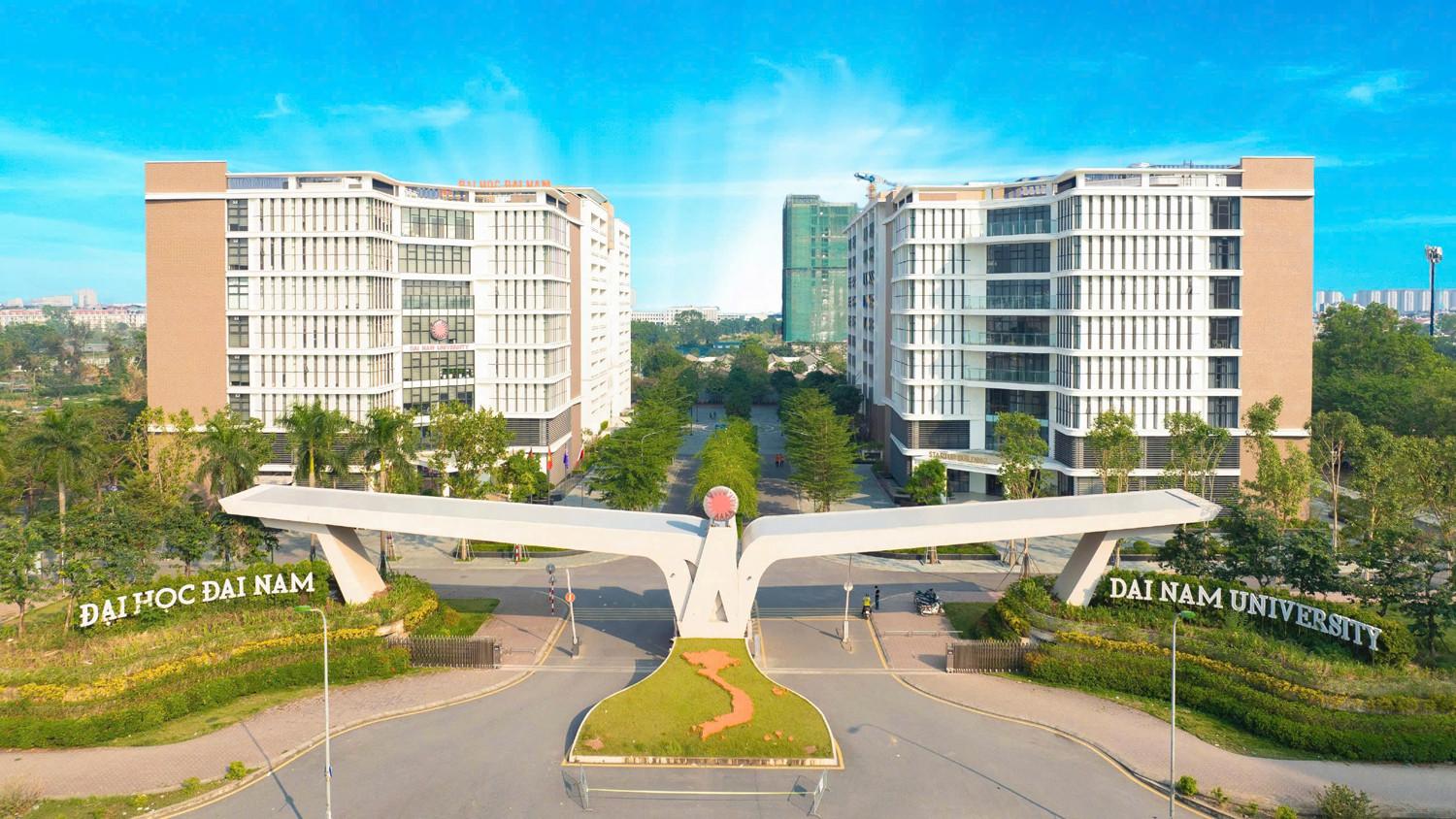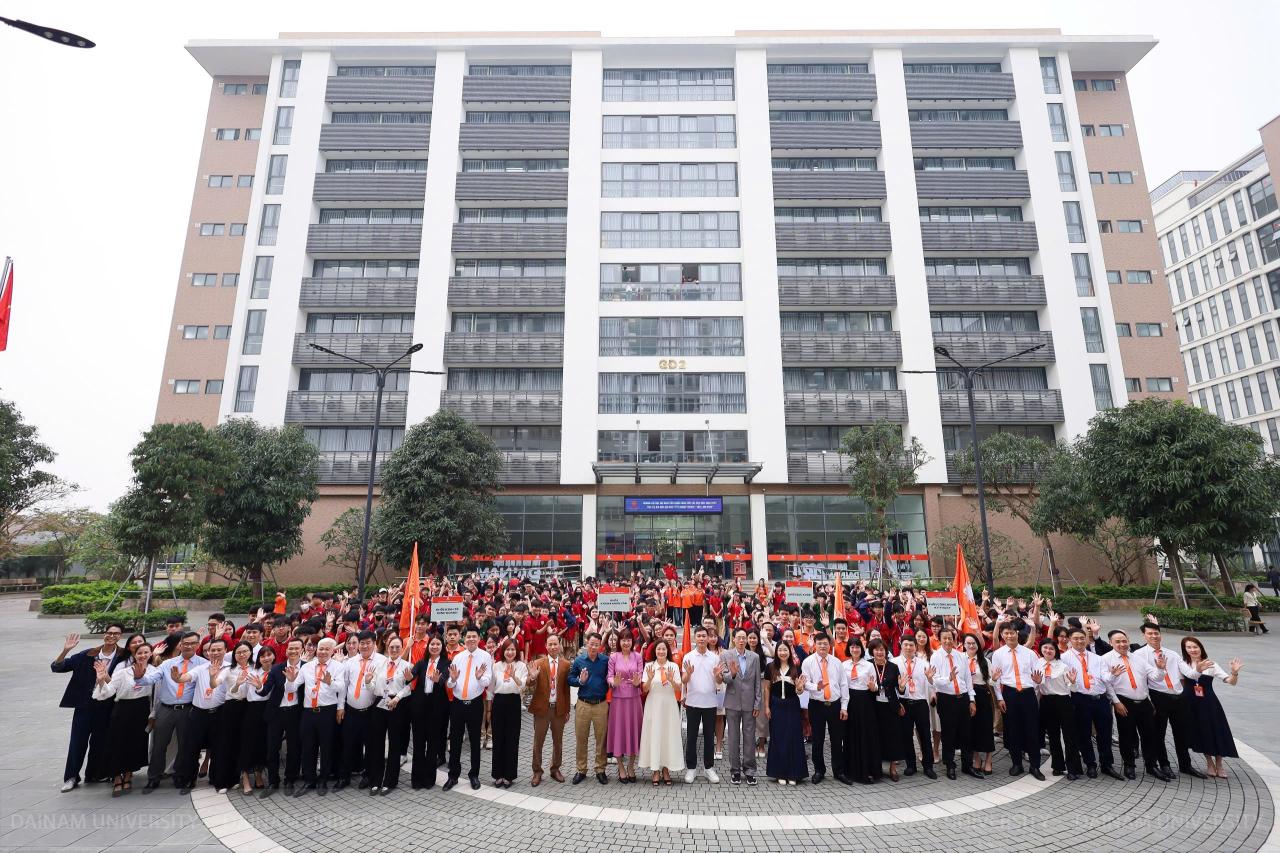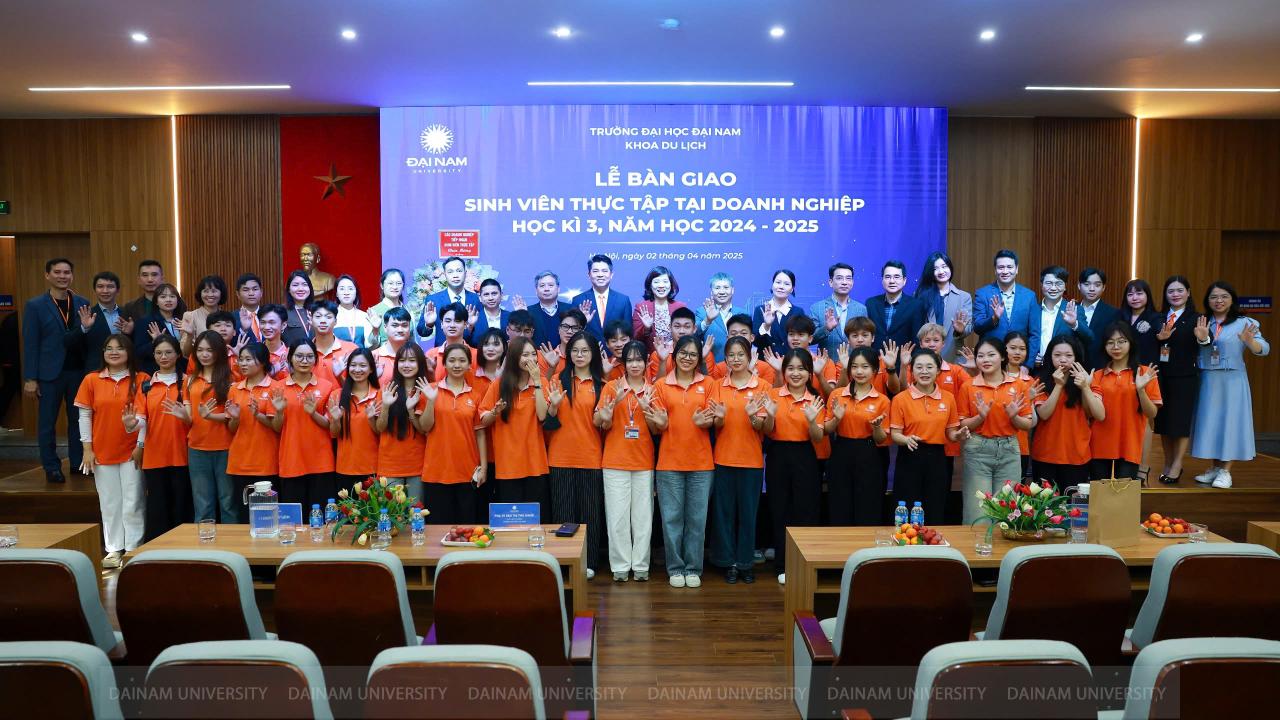Why do students of the Faculty of Tourism, Dai Nam University, learn a second foreign language?

In a dynamic and globalized world, learning many foreign languages to save time, understand diverse cultures around the world, become smarter and open up ideal job opportunities is both an inevitable trend and a mandatory requirement for dynamic young people. However, choosing which foreign language to learn is a difficult question. Experts advise that you should use the criteria of your major and job to choose which foreign languages to learn. At the Faculty of Tourism, Dai Nam University, students can simultaneously learn 1 of 3 foreign languages: Korean/Chinese/Japanese along with English. These are the 4 foreign languages with the highest demand for human resources in the Asia-Pacific region and the current developing tourism industry. Proficiency in these foreign languages always opens up job opportunities not only domestically but also in the region.
Dream job opportunities from knowing more than one foreign language

Besides knowledge, skills, attitudes, foreign languages are mandatory requirements for Tourism students.
According to Ms. Ngo Van Hanh - Human Resources Director of InterContinental Hanoi Landmark 72 Hotel, calculating salary increases for each employee position depends on the number of foreign languages that employee uses.
“When you start working at a company, in addition to the fixed salary paid according to assigned tasks and abilities, using an additional foreign language will pay you an additional 1-3 million per month depending on the level of use. For example, knowing Korean will add 3 million, knowing Chinese will add 6 million…”

Proficiency in more than one foreign language helps Tourism students confidently work and develop themselves in any environment.
Mr. Tran Xuan Loc - Executive Director of Lotus Legend Hotel, with many years of experience studying and working in Kaohsiung, Taiwan, said: “Vietnam is a member of Asia, with a border of more than 1,000 km adjacent to China - the most populous country in the world and the second largest economy in the world. Vietnam is also a country that receives a lot of investment from Taiwan, Korea, Japan... The demand for human resources proficient in these foreign languages is increasing. In addition to English, students who know other foreign languages such as Chinese, Japanese, Korean will have a huge competitive advantage when applying for jobs as well as opportunities for promotion at work..."
Omniglot has compiled a list of the languages with the highest demand for human resources in the continents around the world, based on the number of jobs posted on specific recruitment websites as follows:
- In Africa: English, French, Swahili, Arabic, Portuguese
- In Americas: English, Spanish, Portuguese, French, Japanese
- In Asia Pacific: English, Japanese, Chinese, Korean, Malay/Indo, Spanish
- In Western Europe: UK, France, Germany, Spain, Italy, Netherlands, Flemish, Denmark, Sweden, Norway
Regarding the domestic tourism market, in the Annual Report of the General Department of Tourism for many consecutive years, the three countries including China, Japan, and South Korea have always led in the number of tourists coming to Vietnam.
Specifically: China ranked first with 5.8 million arrivals (+16.9%), accounting for 32.2% of total visitors; South Korea ranked second with 4.3 million arrivals (+23.1%), accounting for 23.8% of total visitors; followed by Japan with 952 thousand arrivals (+15.2%) and Taiwan with 927 thousand arrivals (+29.8%).
DNU Tourism students learn two foreign languages at the same time
Grasping the development trend, global integration in training and the need for language as well as competitive advantages in the job market, the Faculty of Tourism, Dai Nam University has built a training program to help students approach and develop their capacity in a second foreign language.
Accordingly, in addition to English as a compulsory foreign language, students of the Faculty of Tourism can choose 1 of 3 foreign languages: Chinese/Japanese/Korean to study.

Because they learn a second foreign language, many students of the Faculty of Tourism have been selected to go to Japan for internships and experience through the school's training cooperation programs.
Sharing about this training policy, Dr. Hoang Tran Dong - Head of the Faculty of Tourism said: “This is an inevitable training trend that helps students have more opportunities to study and equip themselves with solid knowledge to serve their future work. Learning a second foreign language also helps students of the Faculty of Tourism position their own value in the integration trend of globalization. This is also a trend that meets the aspirations, builds capacity for students and is suitable for the needs of businesses in the current tourism sector…”
Most of the students interviewed said they were very interested and excited to learn two foreign languages at the same time. In particular, being oriented and choosing foreign languages helps students determine their own abilities that are suitable for which foreign language, thereby having clear motivation and learning goals from the beginning.
Sharing about the choice and opportunity to study two foreign languages at the same time, Nguyen Gia Linh - K12 of the Faculty of Tourism said: "I am studying two foreign languages in parallel, English and Korean. Knowing two foreign languages at the same time will help me a lot in my future work. I am very grateful to the school and the Faculty of Tourism for creating conditions for us to access many languages..."

100% of Tourism students surveyed were very excited about being exposed to two foreign languages at the same time during their studies at the school.
As for Phan Thi Ngoc Anh - K12, Faculty of Tourism, in addition to loving Japanese language and culture, her goal of learning more Japanese is to do an internship and work in Japan.
“ In the era of global integration, not knowing more than one foreign language would be a huge disadvantage. I study tourism and will work in tourism in the future, so I always determine that I need to be good at foreign languages. Luckily, during my studies at school, we had the opportunity to access two foreign languages at the same time. This is an advantage that not all tourism students at other schools have…” Anh shared.









